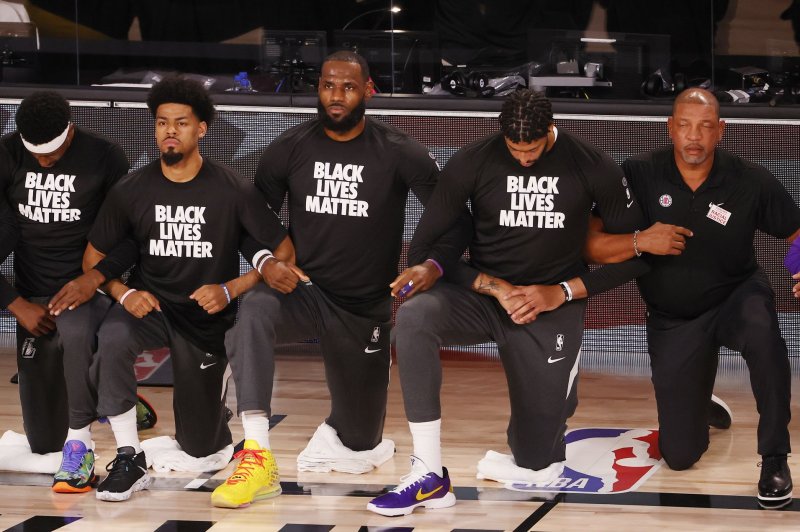The Evolution of the Outspoken Athlete
“Shut up and dribble.” Nearly everyone in the sports world has heard Laura Ingraham’s famous dig at NBA star LeBron James.
November 17, 2020
“Shut up and dribble.” Nearly everyone in the sports world has heard Laura Ingraham’s famous dig at NBA star LeBron James. The phrase holds a lot of weight, encompassing nearly 60 years of animosity towards outspoken athletes, dating back to Muhammad Ali. For some reason, Americans have always resented athletes who speak out for what they believe. Going back to Ali, the boxer first experienced this nation’s unfiltered chagrin when he changed his name from Cassius Clay to Muhammad Ali, representing his switch to the Islamic faith. He faced criticism again when he openly stated his disapproval of the Vietnam War and that he, despite the draft, would not fight for a nation who has put black people “in jail for 400 years” By separating athletes from their beliefs, Americans have tried to keep the status quo, unwilling to change. Notice how during the war, Ali was criticized for draft dodging, but once it became politically correct to respect minorities, he was hailed for being a social justice leader, a man ahead of his time. America is facing that same idea today; athletes who speak out, whether it be on social justice or mental health, are berated for having personal beliefs, as if they aren’t allowed to have an opinion outside of the sport they play.
Despite people like Ali and Kareem Abdul-Jabbar who were vocal during their time, most athletes pre-social media did not speak out. The most famous of these is Michael Jordan, with his famous phrase, “Republicans buy sneakers too.” Within the last 10 or so years, however, dozens of competitors have used their platforms to speak out and give back to their communities. During protests this summer, a multitude of NBA, NFL, and MLB players took to the streets and marched along with the people. In terms of mental health, Kevin Love, DeMar DeRozan, Paul George, and Dak Prescott have all come out in recent years, opening themselves up to criticism by talking about their mental health battles. Even Michael Jordan and the Jordan brand pledged to donate hundreds of millions of dollars to black-owned businesses and to minority communities. If there was anything to take away from this rather scatter-brained article, it’s that people are open to having conversations. Whether they agree with a certain athlete’s views or not, it’s important that people have productive discussions in order to understand one another, rather than be blocked off from different points of view.



